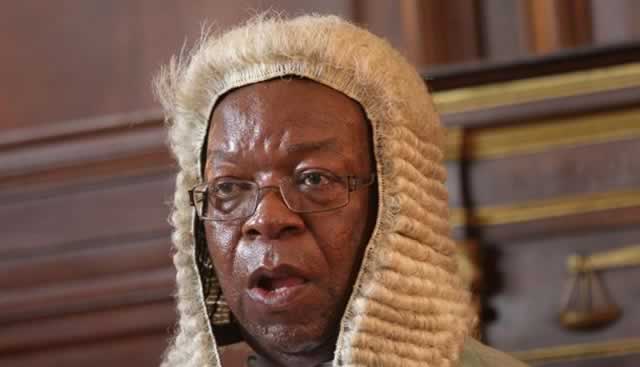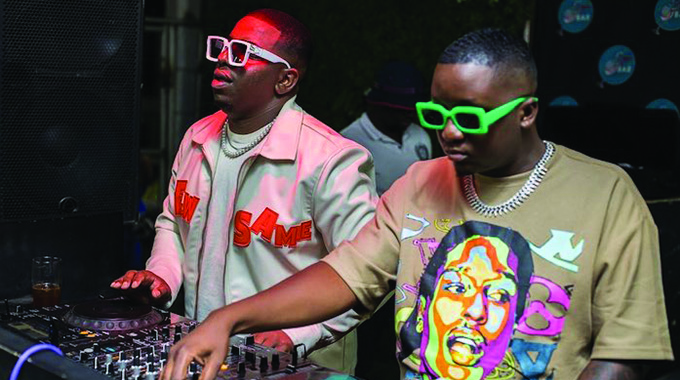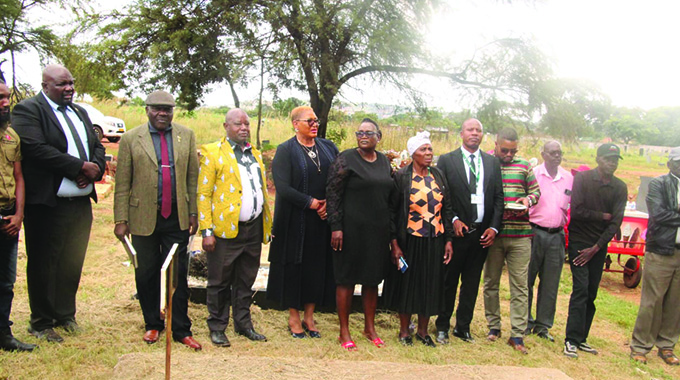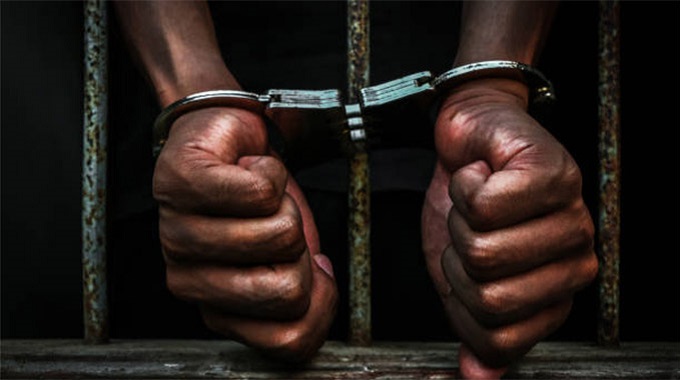Constitution amendment gets the nod: Paves way for President to appoint Chief Justice

Takunda Maodza, Harare Bureau
CABINET has given the greenlight for an amendment to the Constitution, which if passed into law following due processes, will give the President the power to appoint the Chief Justice.
The Constitution Amendment Bill (No.1) 2016 has since been handed over to the Attorney General’s Office for legislative drafting.
Chief Justice Godfrey Chidyausiku retires in February next year.
The Judicial Service Commission held interviews on December 12 to choose a new Chief Justice even though it had been made aware that Government was in the process of amending a Clause in the Constitution dealing with the appointment of the Chief Justice.
It also continued with the interviews even though it was aware that a University of Zimbabwe student, Romeo Taombera Zibani, was challenging the process in the High Court.
Zibani, who wants the President to appoint the Chief Justice, later won the case against the JSC.
High Court Judge Justice Charles Hungwe, who heard the matter, found it irrational for the JSC to hold the interviews considering the vested interests within the commission itself.
Justice, Legal and Parliamentary Affairs Secretary Virginia Mabhiza yesterday confirmed to our Harare Bureau that Cabinet had given the greenlight for the Supreme Law to be amended.
“The Constitution Amendment Bill has passed Cabinet. Right now it is in the office of the Deputy Attorney General for legislative drafting. The next move is to send it to Parliament for gazetting. That is where we are now. We are very happy with the progress made so far,” said Mrs Mabhiza.
After gazetting, the Bill takes three months before it is tabled before Parliament for debate.
If it sails through Parliament it would be presented to the President for his assent.
Mrs Mabhiza clarified why the Constitution was being amended.
“The drafters of the Constitution (2013) failed to recognise that some commissioners of the JSC would themselves become candidates for the position of the Chief Justice thereby making procedure for the interviewing of judges by the JSC inappropriate for the search of a Chief Justice,” she said.
Two candidates eyeing the Chief Justice post are commissioners of the JSC and the third is secretary of the commission.
The fourth is not a commissioner but a senior member of the judiciary.
Further, under normal circumstances the secretary of the JSC would have been responsible for administrative arrangements for the interviews but she surrendered responsibility to her deputy.
It was felt that having juniors interviewing their seniors was a mission impossible.
Mrs Mabhiza said the way forward was to suspend the process of appointing a successor to the Chief Justice pending an amendment to the Constitution to give the President the power to appoint the Chief Justice.
The Bill to amend the Constitution, which document is now before the Attorney General’s Office, must be gazetted three months before it is tabled before Parliament.
The Deputy Chief Justice would act as Chief Justice in the interim as required by the Constitution.
“Justification for an amendment to the Constitution is as follows – the drafters of Constitution failed to specifically address the question of the appointment of the Chief Justice. Aspiring judges are in terms of Section 180 subjected to a public interview by the JSC. The process of appointing a Chief Justice should not be the same as that of appointing other judges. This is because very senior members of the judiciary including some who sit on the JSC as commissioners will inevitably be aspirants for the position,” explained Mrs Mabhiza.
It was also noted that because some of the aspiring members of the position of Chief Justice are also members of the JSC, the capacity of the commission to conduct the interviews was questionable.
“It is unrealistic to expect those remaining members to competently interview candidates who are their seniors and upon which their welfare and future prospects are dependent, the possible exclusion of a significant number of commissioners from the interviewing panel in line with the above would render the panel insufficiently constituted without a quorum,” she added.
It was further noted that no prejudice would be suffered by the judicial system as the deputy Chief Justice would act as Chief Justice for the period during which there would be no Chief Justice in Office.
Mrs Mabhiza said that was why it was recommended that the President approves the suspension of the interviews for the Chief Justice position and that Vice President Emmerson Mnangagwa, who oversees the Justice, Legal and Parliamentary Affairs Ministry, be authorised to start a process of amending the Constitution “to provide for the appointment of a Chief Justice by the President after consulting the JSC”.
Given the process involved, it will take approximately up to the end of March next year to amend the Constitution.
The proposed amendment also seeks to introduce a separate appointment procedure for the Chief Justice, Deputy Chief Justice and the Judge President of the High Court.
Further, it seeks to amend the Constitution to bring more clarity to Section 174 by an explicit provision that Labour Court and the Administrative Court are subordinate to the High Court.
This was after it was noted that Administrative Court and Labour Court are specialised courts that deal with particular areas of law. The two courts were never meant to be at the same level with the High Court which has jurisdiction on any area of law.









Comments